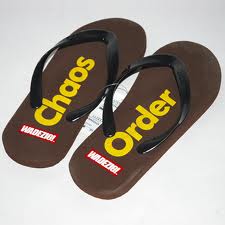What do you want?
Some background
One of the famous questions in the Babylon 5 TV series is "What do you want?". This question is always asked by the agents of the Shadows (agents of chaos, initially presented as The Bad Guys):

Well, let's face it, they look pretty scary...
The "What do you want?" question is typically presented as a futuristic Faustian bargain.
The person answering the question (and thus making the bargain) would typically get what they asked for, but at a terrible price. Londo Mollari got to become Emperor of his people, but at the price of millions of deaths and the destruction of their civilisation.
So the whole "What do you want?" question could have been presented as a "Be careful what you ask for" fable.
And dancing
I was at a dance event (I'll omit the details to spare blushes) last week, and I saw a couple dancing - not unusual, of course. The reason I mention this couple is that they happened to be dancing quite close to where I was sitting, on several occasions, when I was chatting to the DJ / teachers at that event. So I paid some attention to this couple.
They were striking, they were regular partners, and they'd clearly spent a lot of time working with each other. The leader was a good and experienced dancer, But, unmistakeably, they were rubbish. Both the DJ and the teacher, independently, and somewhat spookily, called the female partner a "Nancy Dell'Olio", that's how bad they were.

They paid no attention to the music - at one point they were literally dancing at twice the speed of all other couples on the floor - they showed no connection, and they clearly worked their way through the same set of sequences each dance.
The sad thing is, they'd clearly worked quite hard at this.
They'd got what they wanted - but the price was not being able to dance very well.
Within Tango
Within Tango, we can see such conflicts between "technicals" and "creatives", between "walker" and "move monsters", and so on. (The example I gave above is an extreme verson of a Move Monster - A Move Monster Couple).
A "technical" (or "dance purist") will insist that there is Only One Way to do a certain movement. The obvious example is the "heel / toe" debate, or the shape of a close embrace. A "creative" will take an opposite approach. All movements are equally valid, because they are all expressions of individual creativity.
A "walker" will insist on spending years perfecting a single step. A "move monster" will collect hundreds of sequences of movements.
And so on.
It almost doesn't matter what the debate is. What matters is that you'll always find extremists at either end of it.

Does it matter?
In the grand scheme of things, does it matter? I mean, OK, the Move Monster Couple are dancing strangely, but it's what they want - presumably it's what they like - so who are we to criticize?
Well, yes, it does matter. We all have to find our own way in dancing, of course, but that doesn't mean that all structured learning is irrelevant, all principles should be ignored, or that everyone's opinon is as valid as everyone elses'.
There are conventions, there are objective principles, and there are measurable criteria, for good technique. And everyone dancing should exhibit them. Otherwise you may as well just pop down the latest nightclub and wave your arms about like you don't care.
So you have to obey some rules. There's a good space for structure, for convention, and order.
On the other hand, there's a valid argument to say that what we call "style" is often, ultimately, "dancing like ABC does". And there's an equally-valid argument to say that putting too much constraints on a living dance will stultify the "living" part of that dance form. We only need to look at the state of the ballroom dancing social scene in the UK to see how that can happen.
So there's also a big space for individual development, innovation, and, yes, chaos as the occasional price for that.
Get the hell out of my milonga
Going back to Babylon 5 analogy, the entire mythology of the series was predicated on a conflict between the Good Guys (Vorlons) and the Bad Guys (Shadows). Of course, this simplistic explanation was developed further during the series... From Wikipedia:
The Vorlon question, "Who are you?" focuses on identity as a catalyst for shaping personal goals; the intention is not to solicit a "correct" answer, but to "tear down the artifices we construct around ourselves until we're left facing ourselves, not our roles." The Shadows represent a philosophy of evolution through fire, of sowing the seeds of conflict in order to engender progress. The question the Shadows ask is "What do you want?" In contrast to the Vorlons, they place personal desire and ambition first, using it to shape identity, encouraging conflict between groups who choose to serve their own glory or profit.
Towards the end, both sides were presented as fundamendalist extremists, more interested in the purity of their own ideology than in the people they were supposed to be helping and developing.
And it turned out in the end, the only valid solution was to throw out both sets of extremists, and for us all to make our own paths.
So, my question is: does that ring any bells?
~ David Bailey, 8th November 2011